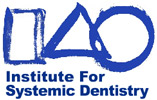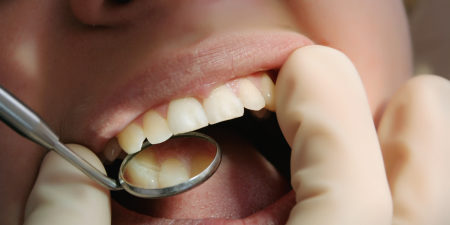At The Center for Systemic Dentistry, we employ a state-of-the-art protocol for safe removal of mercury amalgam. Our protocol offers maximum health protection, identifying and minimizing the risk of pain or sensitivity.
The first step for a new patient is a comprehensive exam, which includes a complete dental examination, a systemic assessment, and a discussion of health goals. The examination begins with an assessment of the patient’s exposure to mercury amalgam and to other metals in existing fillings, crowns, braces, implants and bridges. A structural exam of teeth determines if they are strong or weak, which in turn determines the required strength of the replacement fillings. A pulpal exam gauges whether the nerves are healthy or suffering from inflammation, infection, or degeneration. The periodontal exam evaluates whether or not gum tissue is healthy and looks for signs of bone loss. A functional examination checks occlusion (bite) and the muscles of the jaw and jaw joint; muscle spasm in this area has a significant stress effect on teeth. Finally, dental radiographs (analog x-rays) are taken, and an acupuncture meridian to tooth association is performed.
The comprehensive exam and the patient’s overall health status assist our dentists in determining if the patient is at risk of systemic reaction in the immune, detoxification, or elimination systems.
The next step in the treatment plan is the actual removal of old mercury amalgams and replacement with new, mercury-free amalgam. Our dentists select a restoration type and material for each affected tooth, based on the results of the comprehensive exam. There are four types of restorations:
- Type I: Direct Restoration. For a patient with good dental health and a strong tooth, restoration is made in one visit with a direct filling material.
- Type II: Inlay Restoration. A tooth that is mostly sound may still require an inlay to restore structural strength.
- Type III: Onlay Restoration. A mostly sound tooth with a chewing surface (cusp) that requires restoration.
- Type IV: Crown Restoration. For a structurally weak tooth that has loss of one or more cusps.
Other factors influencing the dentist’s selection of restoration type include cracked or fractured teeth, degenerated or susceptible nerves, and teeth grinding.
Mercury-free replacement materials are evaluated for strength, wear, resistance, and esthetics, and different materials are used for different types of restorations. Commonly used materials include composites (made from silica glass and resin), ceramics (three types), and metals (including gold, platinum, palladium). The dentist’s exam and evaluation determine the best replacement materials for a given patient and for individual teeth.
Throughout the mercury removal and replacement procedure, patients are protected in multiple ways, including:
- Cooling: Heat from drilling increases the release of mercury vapor; temperature control reduces that.
- Chunking: Minimizing the amount of drilling needed for removal also reduces vapor release.
- High-volume evacuation: Powerful suction to minimize patient exposure to mercury vapor and amalgam particles.
- Rubber dams: Isolates the work area to reduce mercury exposure.
- Cleansing: Thorough cleaning ensures removal of all amalgam particles.
- Pure air: Filtered office air prevents the spread of mercury vapor.
Our dentists keep you informed through every step of your mercury amalgam removal process, including “Dos” and “Don’ts” for the day of treatment, therapeutic scheduling for optimized treatment, nutritional and systemic assessments, a follow-up consultation, and post-treatment therapies as necessary.
A safe, effective program for removal of mercury amalgam is the first step toward reversing the effects of mercury toxicity in your body. The Center for Systemic Dentistry in Berkeley Heights, New Jersey, is committed to being the state’s leading dental practice that focuses on holistic, healing-focused dentistry. Dr. Philip Memoli is ready to help you recover your health so you can begin to lead a life free of mercury toxicity. Call us today at (908) 464-9144 or contact us via our online contact form.
Read more about safe amalgam removal at http://www.holisticdentistrynj.com/our-services/safe-mercury/.








